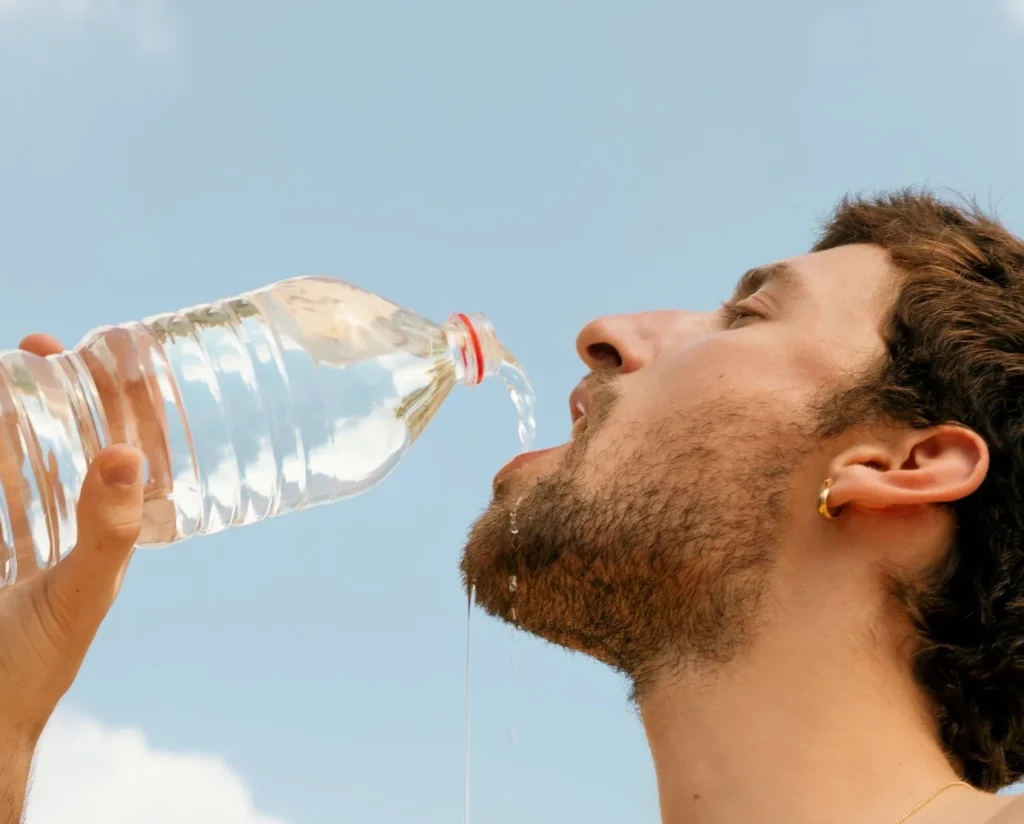What are symptoms of bad dehydration?

What are symptoms of bad dehydration?
Dehydration occurs when the body loses more fluids than it takes in, leading to an imbalance in the body’s water levels. It is essential to understand the definition of dehydration to recognize its symptoms and take appropriate measures to prevent further complications. Dehydration can occur due to various reasons, including inadequate fluid intake, excessive sweating, vomiting, diarrhea, and certain medical conditions. While anyone can experience dehydration, certain populations, such as young children and older adults, are at a higher risk. Recognizing the symptoms of dehydration is crucial to address the issue promptly and restore the body’s fluid balance.
Symptoms of dehydration can vary depending on the severity of the condition. Mild to moderate dehydration may present with symptoms such as increased thirst, dry or sticky mouth, reduced urine output, dark yellow urine, dry and cool skin, headache, muscle cramps, fatigue, dizziness, and lightheadedness. These symptoms serve as warning signs that the body needs more fluids to maintain proper hydration levels. It is important not to ignore these signs, as they indicate that the body is already experiencing mild dehydration.
Severe dehydration requires immediate medical attention as it can be life-threatening. In addition to the symptoms mentioned earlier, severe dehydration may manifest as increased apathy or weakness, confusion, loss of consciousness, reduced or no urine output, pale appearance, and a fast pulse. It is crucial to seek medical help if these severe symptoms are present. Understanding and recognizing the symptoms of dehydration can help individuals take the necessary steps to rehydrate their bodies and prevent further complications.
Physical symptoms of mild dehydration
One of the physical symptoms of mild dehydration is a dry mouth and increased thirst. When the body is lacking sufficient fluids, it sends signals to the brain to increase the desire for water intake. Excessive thirst, known as polydipsia, is a common symptom of dehydration. It is important to pay attention to this symptom and replenish fluids to prevent further dehydration.
Another physical symptom of dehydration is dark-colored urine and decreased urine output. When the body is dehydrated, the kidneys conserve water by reducing urine production, resulting in darker urine. This is the body’s way of trying to retain as much fluid as possible. Monitoring the color and frequency of urine can provide valuable insights into hydration levels. If urine output is significantly reduced or there is a noticeable change in color, it may indicate dehydration.
Fatigue and dizziness are also common symptoms of mild dehydration. When the body lacks adequate fluids, it can lead to a decrease in blood volume and lower blood pressure, resulting in feelings of fatigue and dizziness. Dehydration can affect the body’s energy levels and overall cognitive function, leading to a decrease in alertness and concentration. It is important to listen to these signals from the body and take steps to rehydrate to prevent further complications.
Physical symptoms of moderate dehydration
One of the physical symptoms of moderate dehydration is dry skin and sunken eyes. When the body is dehydrated, it lacks the necessary fluid to keep the skin hydrated and supple. As a result, the skin may appear dry, flaky, and dull. In addition, dehydration can cause the eyes to appear sunken and hollow. These visual cues serve as indicators that the body is in need of hydration and can be early warning signs of dehydration.
Another physical symptom of moderate dehydration is a rapid heartbeat and low blood pressure. When the body is dehydrated, there is a decrease in blood volume, which can lead to an increased heart rate in an attempt to compensate for the reduced fluid levels. Additionally, low blood pressure can occur as a result of dehydration, as the body tries to conserve water by constricting blood vessels. These symptoms can be concerning and may require medical attention to address the underlying dehydration.
Muscle cramps and weakness are also common symptoms of moderate dehydration. Dehydration can disrupt the balance of electrolytes in the body, such as sodium and potassium, which are essential for proper muscle function. When these electrolyte levels are imbalanced, it can lead to muscle cramps and a feeling of weakness. These symptoms can be particularly uncomfortable and may be a sign that the body is in need of rehydration and replenishment of electrolytes.
Physical symptoms of severe dehydration
One of the physical symptoms of severe dehydration is confusion and irritability. When the body lacks sufficient fluids, it can affect brain function, leading to cognitive difficulties and changes in behavior. Individuals may become disoriented, have difficulty concentrating, and experience mood swings. Dehydration can also cause irritability, making individuals more easily agitated and prone to frustration. These symptoms serve as warning signs that the body is in a state of severe dehydration and requires immediate attention and rehydration.
Fainting and seizures can also be symptoms of severe dehydration. When the body is dehydrated, the volume of blood and oxygen reaching the brain decreases, which can result in dizziness and lightheadedness. In extreme cases, this can lead to fainting. Furthermore, severe dehydration can disrupt the balance of electrolytes in the body, which are essential for proper nerve function. This imbalance can trigger seizures in some individuals. Therefore, experiencing fainting or seizures should be taken seriously and prompt medical attention should be sought.
Rapid breathing and lack of sweating are additional symptoms of severe dehydration. When the body is dehydrated, it tries to compensate by increasing respiration rate in an effort to expel carbon dioxide and maintain oxygen levels. This can lead to a sensation of shortness of breath and rapid breathing. Additionally, dehydration can impair the body’s ability to regulate its temperature through sweating. Lack of sweating, even in hot environments or during physical exertion, can indicate severe dehydration. These symptoms indicate a significant fluid imbalance in the body and should be addressed promptly to prevent further complications.





